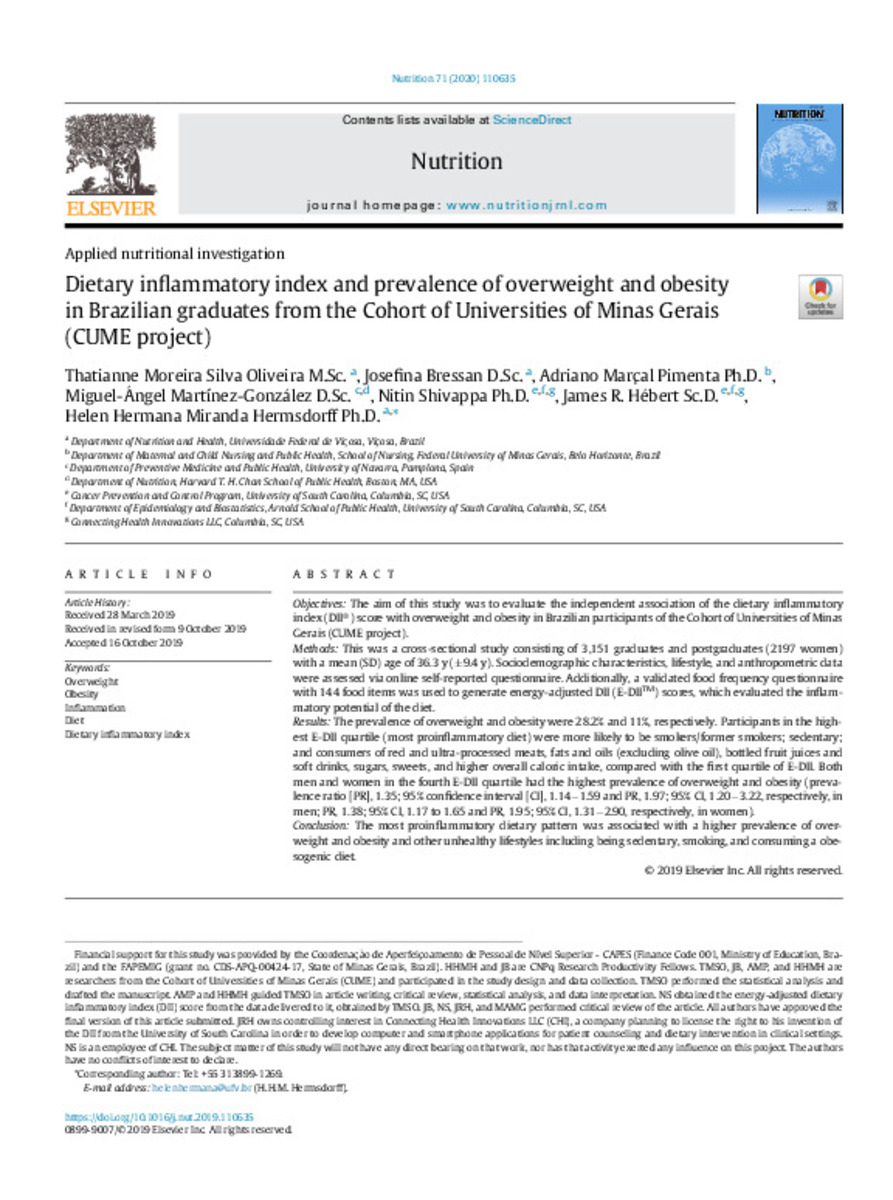Dietary inflammatory index and prevalence of overweight and obesity in Brazilian graduates from the Cohort of Universities of Minas Gerais (CUME project)
Keywords:
Overweight
Obesity
Inflammation
Diet
Dietary inflammatory index
Citation:
Moreira-Silva, T. (Thatianne); Bressan, J. (J.); Marcal-Pimenta, A. (Adriano); et al. "Dietary inflammatory index and prevalence of overweight and obesity in Brazilian graduates from the Cohort of Universities of Minas Gerais (CUME project)". Nutrition. 71, 2020, 110635
Statistics and impact
0 citas en

0 citas en

Items in Dadun are protected by copyright, with all rights reserved, unless otherwise indicated.








